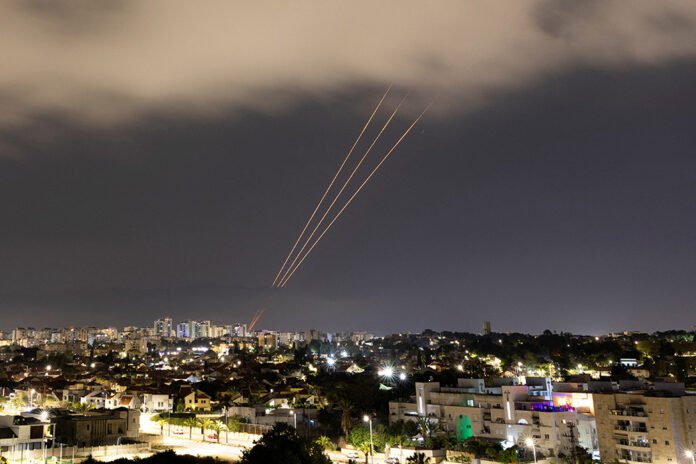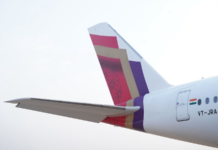On October 1, Iran’s missile strike on Israel sent shockwaves through the global civil aviation sector, severely impacting international flight operations, including routes connecting India to various destinations.
In the wake of escalating tensions following Iran’s retaliatory strike, airlines scrambled to revise their flight paths. Major carriers, including Lufthansa and Air India, were compelled to alter their routes to avoid Iranian, Iraqi, Syrian, and Israeli airspace.
Mid-Flight Diversions
On the night of the attack, several flights were already airborne. Lufthansa’s flights from Frankfurt to both Mumbai and Hyderabad, designated LH756 and LH752, turned back from Turkish airspace to avoid entering Iranian airspace amid the escalating conflict.
Similarly, Polish airline LOT’s flight LO75 from Warsaw to Mumbai was diverted to Baku, Azerbaijan, while Air India’s AIC128 managed to continue its journey to Mumbai despite passing through Iranian airspace at the time.
Following the attack, Lufthansa announced the cancellation of its flights from Hyderabad to Frankfurt and Mumbai to Frankfurt on October 2, attributing the decision to the ongoing tensions in the region.
“Passengers have been rerouted or accommodated,” said Jeffrey James, Head of Lufthansa Group Communications for Asia Pacific.
Redrawing Flight Paths
In light of the heightened risks, many airlines, especially those operating between India and Europe, have revised their flight routes.
For instance, Qatar Airways and Etihad have shifted their paths to fly over Saudi Arabia and Egypt, circumventing Iraq entirely.
Air India confirmed it is closely monitoring the situation, with daily assessments of flight safety.
The airline has also suspended all flights to Tel Aviv until further notice, with some of its flights now taking longer, circuitous routes through Tajikistan and Turkmenistan.
Redrawing Flight Paths
Given the increased risks, many airlines, particularly those operating between India and Europe, have restructured their flight routes. Qatar Airways and Etihad, for instance, have opted to fly over Saudi Arabia and Egypt, avoiding Iraq entirely. Air India is closely monitoring the situation and conducting daily assessments of flight safety, suspending all flights to Tel Aviv until further notice. Some of its flights are now taking longer, circuitous routes through Tajikistan and Turkmenistan.
Global Repercussions
The ripple effects of the missile attack are being felt worldwide.
Regional airports, especially in Lebanon, Israel, and Kuwait, are experiencing significant delays, while Emirates has announced the cancellation of all regular flights to and from Iraq, Iran, and Jordan for October 4 and 5.
FlightRadar24 spokesperson Ian Petchenik noted that airlines are predominantly rerouting flights to avoid Iranian airspace, with northern routes taking planes through Azerbaijan and Afghanistan, while southern routes traverse Egypt and Saudi Arabia.
Concerns about potential travel disruptions amid escalating conflict have already begun to impact airline shares, signaling broader economic repercussions from the rising tensions in the Middle East.
As the situation evolves, airlines and passengers alike are advised to stay informed and prepared for ongoing adjustments in flight schedules and routes.











